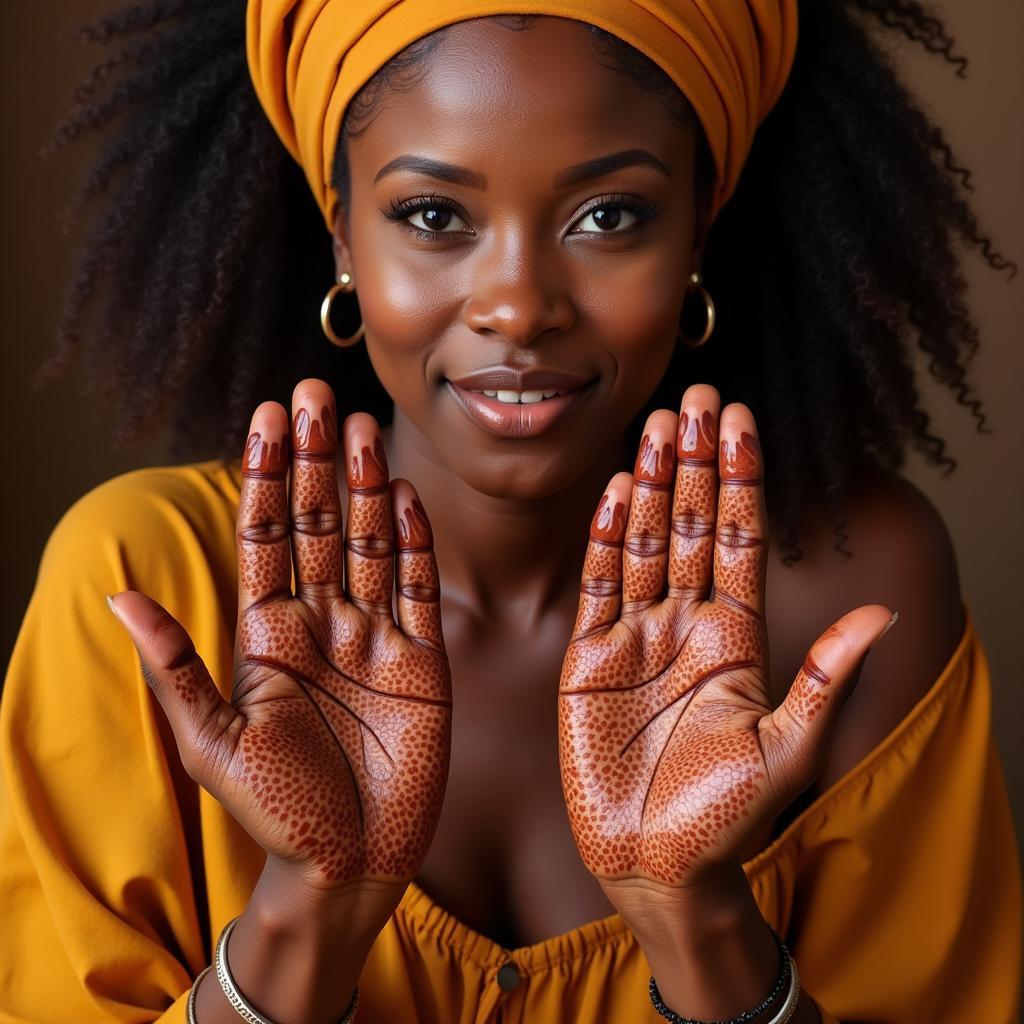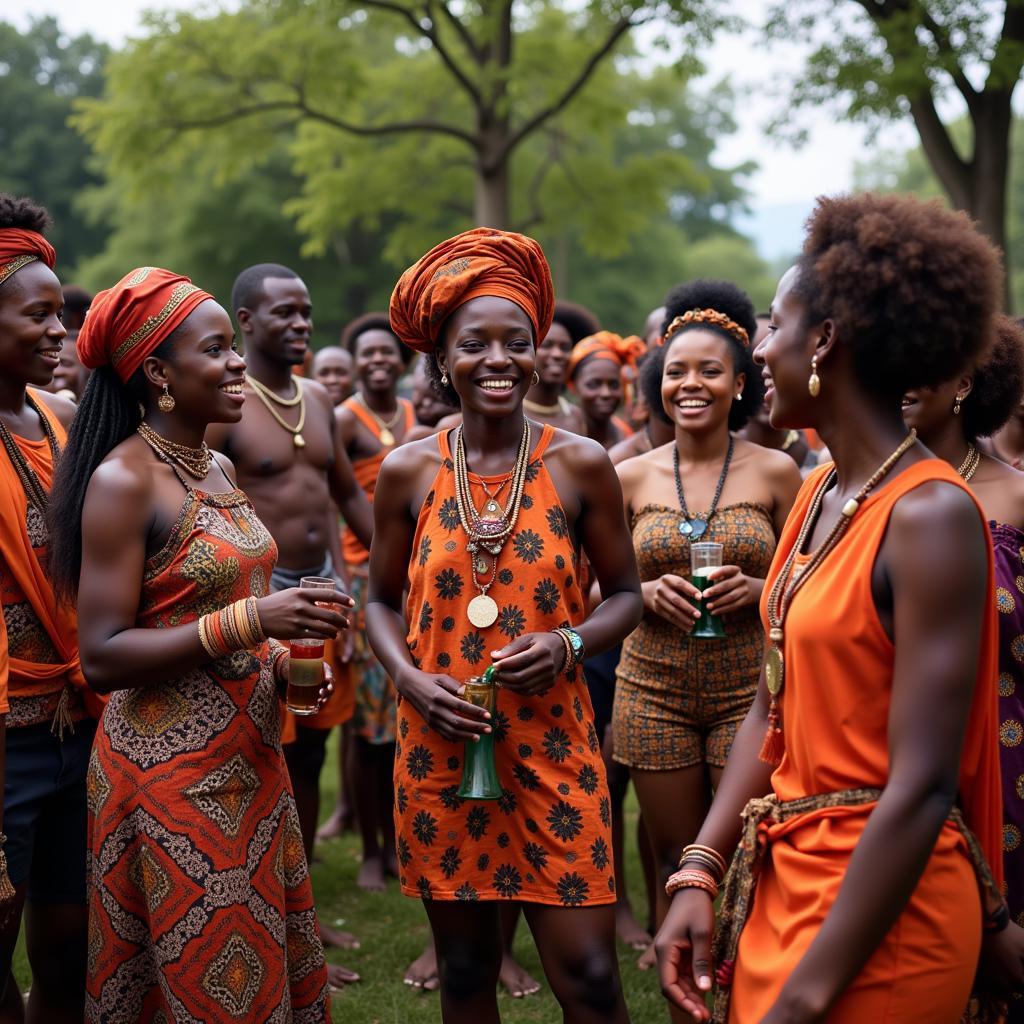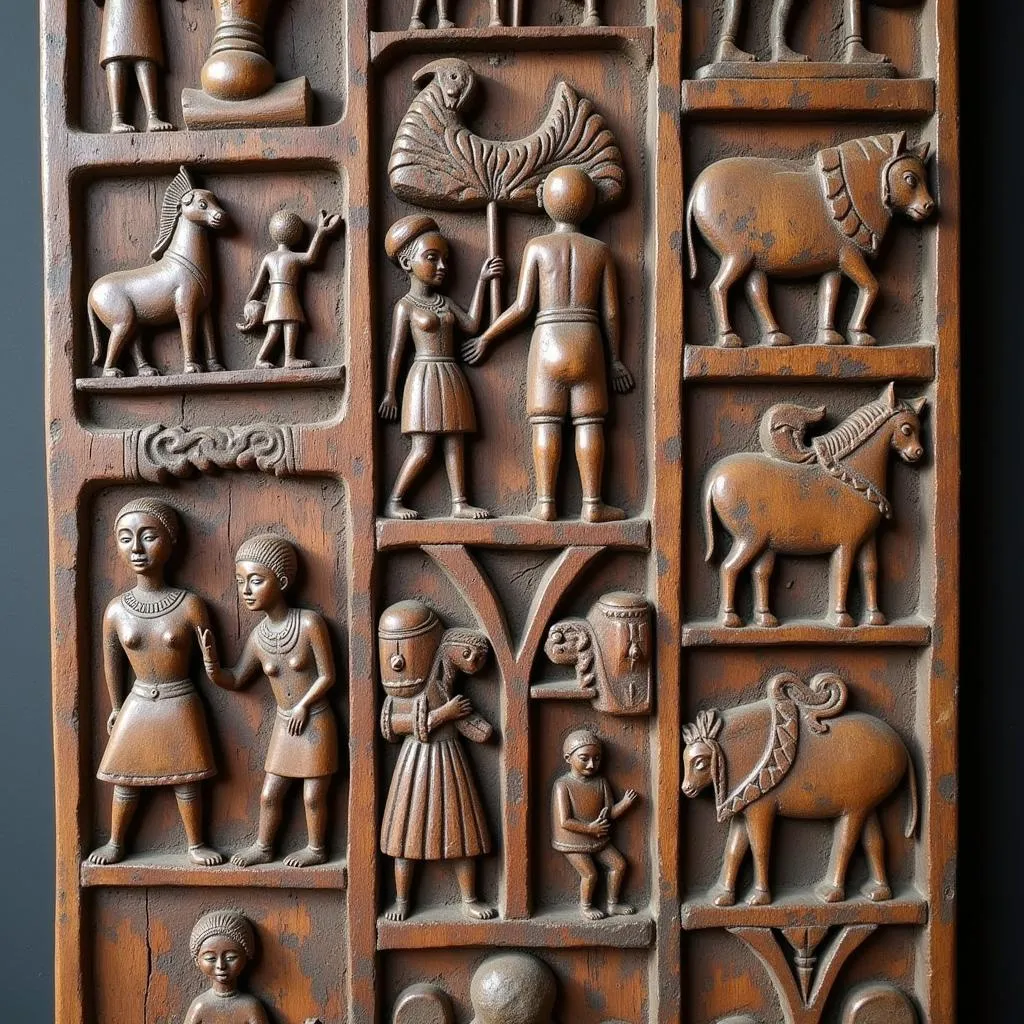African Folkways and Mores: A Journey into the Continent’s Rich Cultural Tapestry
African Folkways And Mores are a vibrant tapestry woven from the threads of diverse traditions, beliefs, and customs. This captivating blend reflects the continent’s rich history and its people’s enduring connection to their heritage. From the bustling markets of Marrakech to the serene landscapes of the Serengeti, the cultural nuances across Africa offer a fascinating glimpse into the soul of the continent.
Understanding African Folkways and Mores
African societies, like any other, are governed by a complex set of unwritten rules and customs that dictate social behavior. These folkways and mores, passed down through generations, form the bedrock of cultural identity and provide a framework for navigating everyday life. They encompass a wide range of aspects, including family structures, marriage customs, religious beliefs, artistic expressions, and even culinary traditions. Understanding these cultural nuances is essential for appreciating the depth and complexity of African societies.
The Significance of Family in African Culture
Family plays a pivotal role in African cultures, often extending beyond the nuclear family to include extended relatives and even entire communities. This strong sense of kinship fosters a spirit of collective responsibility and mutual support, where the well-being of the group is prioritized over individual needs. Respect for elders is paramount, and their wisdom and guidance are highly valued in decision-making processes.
In many African communities, oral traditions are the primary means of transmitting knowledge and cultural values. Storytelling, proverbs, and songs serve as powerful tools for educating younger generations about their heritage and instilling a sense of belonging.
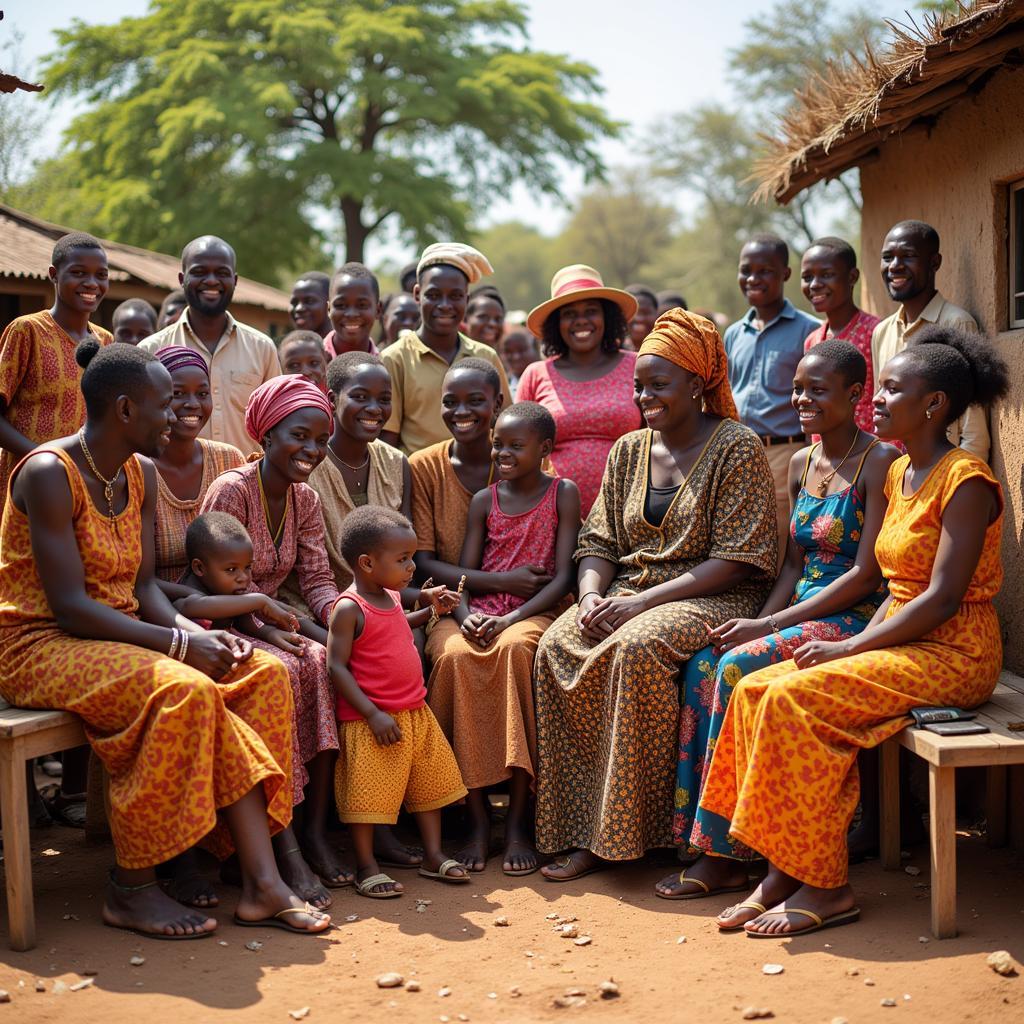 African family gathering celebrating tradition
African family gathering celebrating tradition
Marriage Customs and Traditions
Marriage in Africa is often a significant event, not just for the individuals involved, but for their entire families and communities. Customs vary widely across the continent, reflecting the diversity of ethnic groups and traditions. Some cultures practice polygamy, while others emphasize monogamous relationships. Bride price, a payment made by the groom’s family to the bride’s family, is a common practice in many African societies, symbolizing the value placed on women and their role in the family.
Traditional African weddings are typically vibrant celebrations filled with music, dancing, and feasting. The ceremonies often involve symbolic rituals that represent the union of two families and the continuity of cultural heritage.
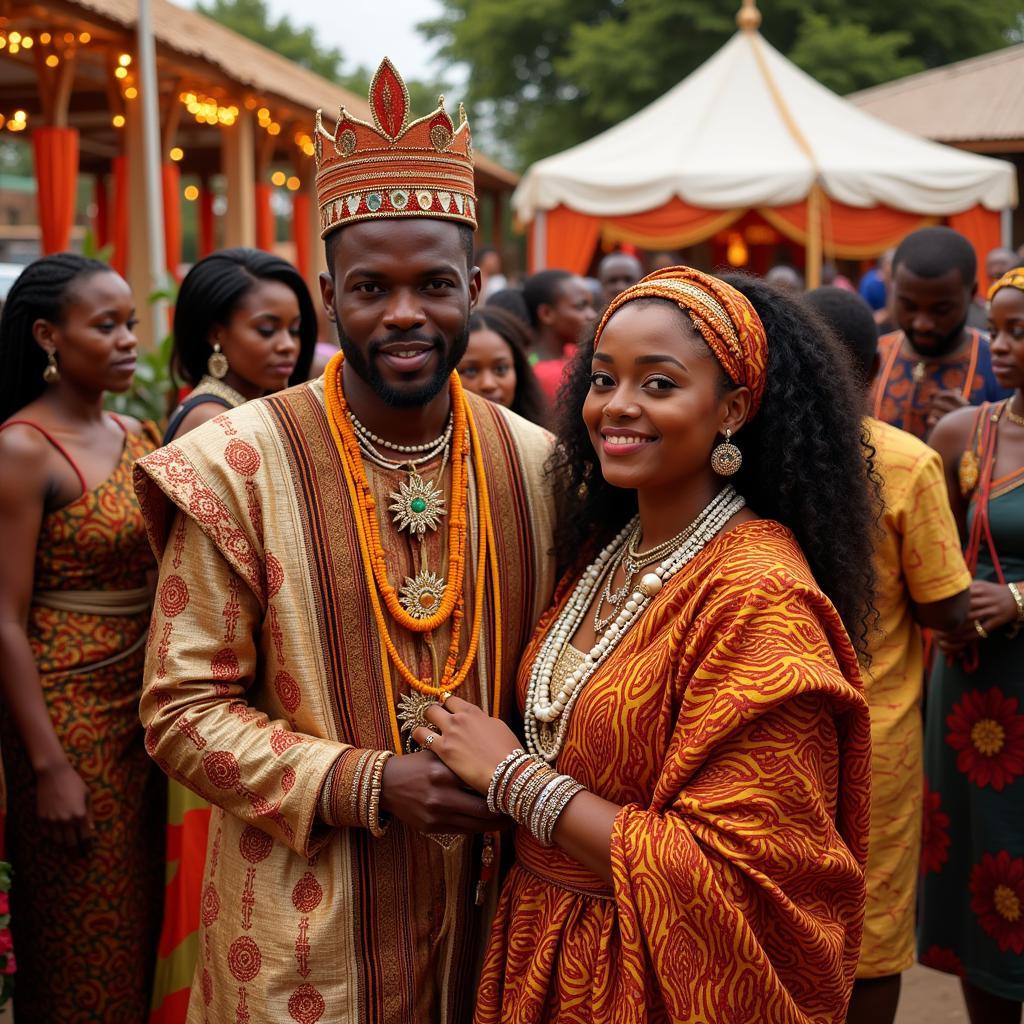 Traditional African wedding ceremony with bride and groom
Traditional African wedding ceremony with bride and groom
The Role of Art, Music, and Food
Art, music, and food are integral components of African cultural expression. From intricate wood carvings and vibrant textiles to rhythmic drumming and soulful melodies, these artistic forms reflect the creativity and ingenuity of African people. Traditional African music often serves as a medium for storytelling, conveying historical narratives, moral lessons, and social commentary.
Food also plays a significant role in African culture. Each region boasts its unique culinary traditions, using locally sourced ingredients and spices to create flavorful dishes. Meals are often communal affairs, fostering social bonds and reinforcing a sense of belonging.
African Spirituality and Beliefs
Spirituality is deeply embedded in African cultures, shaping worldviews and influencing daily life. While many Africans have adopted Christianity or Islam, traditional belief systems continue to hold significance. Ancestor veneration, a common practice in many African communities, reflects the belief that the spirits of the deceased continue to influence the living. Rituals and ceremonies are performed to honor ancestors and seek their guidance.
Conclusion
African folkways and mores represent a rich and complex tapestry of traditions, beliefs, and practices that shape the lives of millions across the continent. Understanding these cultural nuances is crucial for appreciating the depth and diversity of African societies. By exploring these traditions, we gain valuable insights into the human experience and the enduring power of cultural heritage. African folkways and mores are not static relics of the past, but rather dynamic forces that continue to evolve and adapt in the face of change, ensuring the continuity of cultural identity for generations to come.
FAQ
- What are some common examples of African folkways? Respect for elders, communal living, and oral traditions are common examples.
- How do African mores differ from folkways? Mores are generally considered more serious than folkways, with stricter consequences for violations.
- What is the role of music in African culture? Music plays a vital role in storytelling, preserving history, and expressing emotions.
- Why is family so important in African societies? Family provides a strong support system, fosters a sense of belonging, and transmits cultural values.
- How do African spiritual beliefs influence daily life? Spiritual beliefs shape worldviews, influence decision-making, and provide a framework for understanding the world.
- What is the significance of bride price in African marriage customs? Bride price symbolizes the value placed on women and their role in the family.
- How can I learn more about specific African cultures? Researching individual ethnic groups and their traditions is a great way to deepen your understanding.
Need more support? Contact us 24/7: Phone: +255768904061, Email: [email protected] or visit us at Mbarali DC Mawindi, Kangaga, Tanzania.
